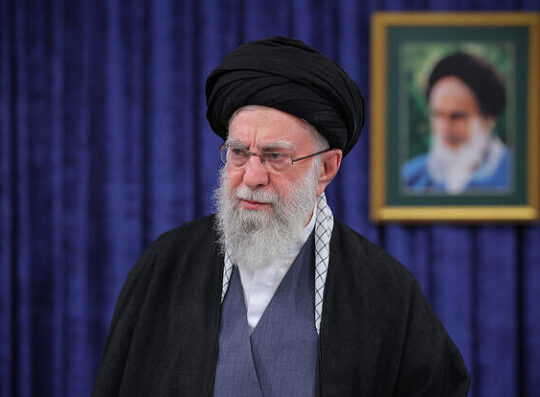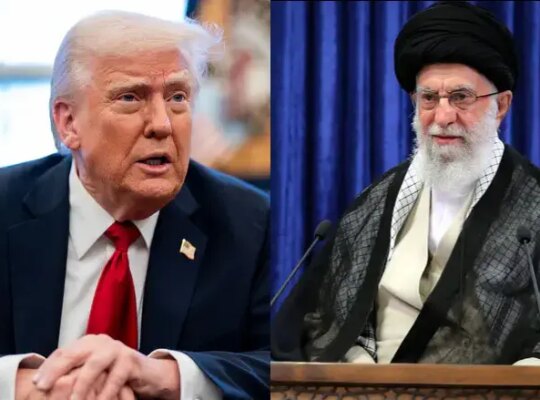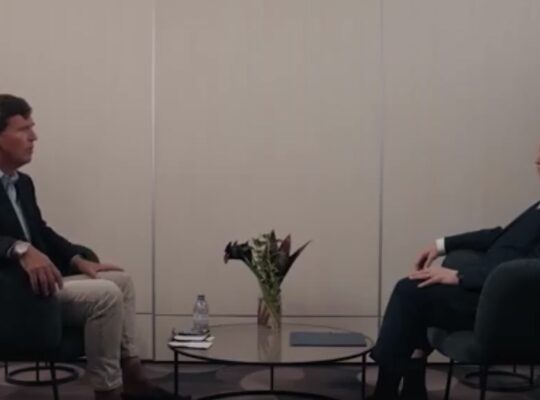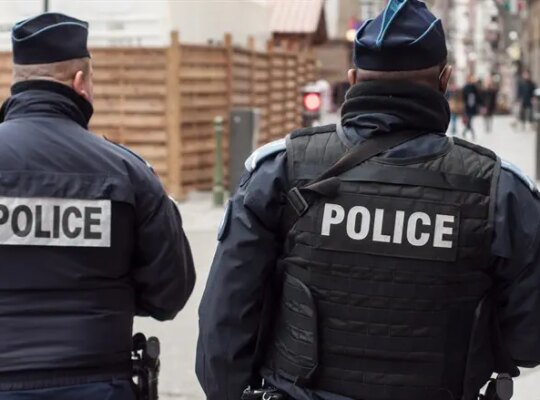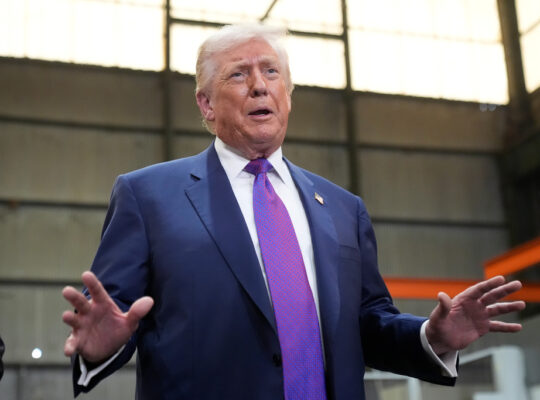A decorated Vietnam veteran and father of two gunned down outside his Paris home will see no justice after a French court ordered the release of his Lebanese terrorist killer this week, despite decades of American opposition.
Georges Ibrahim Abdallah, 74, will walk free from a French prison on July 25 after serving 40 years of a life sentence for murdering U.S. Army Lieutenant Colonel Charles Ray and Israeli diplomat Yacov Barsimantov in 1982. Paris Court of Appeal judges ruled Thursday that Abdallah’s detention had become “disproportionate,” conditional only on his immediate deportation to Lebanon and permanent banishment from France.
Ray, a New York City native stationed in Paris as an assistant military attaché, was executed with a single gunshot to the head outside his family’s apartment building on January 18, 1982. The decorated Vietnam veteran left behind a wife, Sharon, and two young children. Four months later, Barsimantov was similarly assassinated by a female terrorist who shot him in the head in front of his wife and children before fleeing into the Paris subway system.

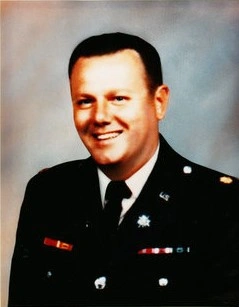

Both murders were carried out by Abdallah’s Lebanese Armed Revolutionary Factions (LARF), a Marxist terror group he founded after joining the Popular Front for the Liberation of Palestine in 1978. LARF claimed responsibility for four deadly attacks in France during the 1980s and maintained contact with other European terror organizations including Italy’s Red Brigades and Germany’s Red Army Faction.
“No one on Earth deserves to die like that, to be executed like that,” Sharon Ray testified during Abdallah’s 1987 trial, according to court records. Her husband’s killer received a life sentence that year, far exceeding the 10-year term prosecutors had initially sought.
Abdallah became eligible for parole in 1999 under French law but saw 10 previous release requests denied, largely due to consistent opposition from Washington. In 2003, a French court initially granted his freedom, only to reverse the decision after the U.S. State Department and French Justice Minister intervened. Interior Minister Manuel Valls blocked another attempted release in 2013 by refusing to sign necessary deportation papers.
“He has never renounced his convictions,” Abdallah’s lawyer Jean-Louis Chalanset told reporters Thursday, describing his client as “a communist militant who supports the Palestinian struggle and fights against the invasion of his country by Israel.” Chalanset called the ruling “both a judicial victory and a political scandal that he was not released earlier.”
Throughout four decades of imprisonment, Abdallah consistently justified the diplomatic assassinations as “acts of resistance” against Israeli and American “oppression.” He has refused to express remorse or pay compensation to victims’ families, though his legal team deposited 16,000 euros into his prison account last month to satisfy court requirements.
U.S. Department of Justice officials have argued for years that Abdallah’s release would threaten American diplomatic personnel worldwide. Washington expressed particular concern about his stated intention to return to Qobayyat, his hometown on the Lebanese-Syrian border, given ongoing conflict between Israel and Iran-backed Hezbollah forces.
French anti-terrorism prosecutors immediately appealed Thursday’s decision to the Court of Cassation, though legal experts said the appeal process would not halt next week’s scheduled release. Lebanese authorities have repeatedly lobbied for Abdallah’s freedom and confirmed they would arrange his transport to Beirut.
“We’re delighted. I didn’t expect the French judiciary to make such a decision nor for him to ever be freed, especially after so many failed requests for release,” Robert Abdallah, the terrorist’s brother, told AFP from Lebanon. “For once, the French authorities have freed themselves from Israeli and US pressures.”
Around 200 supporters gathered in Toulouse on Wednesday ahead of the court ruling, demonstrating outside the Lannemezan prison where Abdallah has been held in the French Pyrenees. Nobel Prize-winning author Annie Ernaux wrote in the communist daily L’Humanité last month that his continued detention “shamed France.”
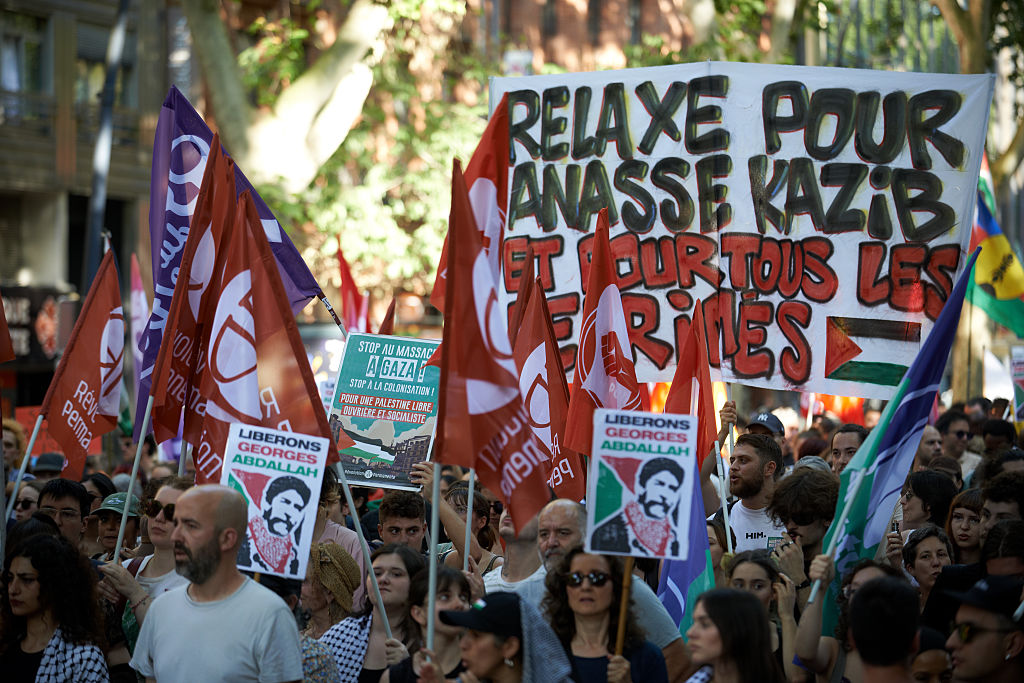

Abdallah will become one of the longest-serving prisoners ever released in France, where most life sentence inmates are freed after less than 30 years. His case has generated diplomatic tension for decades, with successive French governments caught between domestic legal requirements and international pressure from key allies.
Sources familiar with the deportation arrangements said Abdallah would be flown from southern France to Paris, then onward to Beirut on July 25. Lebanese officials confirmed they would facilitate his return to his village in northern Lebanon, where he previously worked as a secondary school teacher before embracing violent extremism.
Source link




